When your exhaust rattling sound when idle, it can be a cause for concern. The rattling noise can be annoying and may indicate an underlying issue with your vehicle.
In this article, we will explore the 12 most possible causes of why your Car Rattling When Idle, helping you identify the source of the problem.
From loose components to worn-out parts, there are several reasons why your car might produce a rattling sound when at rest.
By understanding these potential causes, you can take appropriate action and prevent further damage to your vehicle.
So let’s dive in and discover what could be causing that unsettling rattle in your car when it’s idling.
Car rattling when idle can be caused by a loose or damaged exhaust heat shield, a bad catalytic converter, loose or damaged engine mounts, loose or worn belts, or loose or worn spark plugs. If you hear a rattling noise coming from your car when it is idling, it is important to have the car checked by a mechanic as soon as possible.
Table of Contents
12 Possible Causes of Car Rattling When Idle:
| Cause | Description | Symptoms |
|---|---|---|
| Loose or damaged exhaust heat shield | The exhaust heat shield is a metal shield that helps to insulate the exhaust system and prevent heat from radiating to other parts of the car. If the heat shield is loose or damaged, it can rattle against the exhaust system, causing a noise. | Engine rattling at idle, especially when the car is cold. |
| Bad catalytic converter | The catalytic converter is a device that helps to reduce emissions from the car’s exhaust. If the catalytic converter is bad, it can rattle as it tries to convert the exhaust gases. | Engine rattling at idle, especially when the car is cold. Black exhaust smoke. |
| Loose or damaged engine mounts | The engine mounts are rubber or metal brackets that hold the engine in place. If the engine mounts are loose or damaged, they can allow the engine to move around, causing a rattling noise. | Engine rattling at idle, especially when the car is cold. Vibrations in the car. |
| Loose or worn belts | The belts in your car’s engine drive various components, such as the alternator, power steering pump, and air conditioning compressor. If a belt is loose or worn, it can rub against other parts of the engine, causing a rattling noise. | Engine rattling at idle, especially when the car is cold. Belt squealing. |
| Loose or worn spark plugs | The spark plugs ignite the fuel in your car’s engine. If the spark plugs are loose or worn, they can cause a rattling noise as they fire. | Engine misfires, especially at idle. Rough idle. |
| Low engine oil level | Engine oil lubricates the moving parts in your car’s engine. If the engine oil level is low, the parts can rub against each other, causing a rattling noise. | Engine knocking. Engine rattling at idle. |
| High engine temperatureIf your car’s engine temperature gets too high, the metal parts can expand and rattle against each other. | Engine overheating. Engine rattling at idle. | |
| Valve clearance problems | The valves in your car’s engine control the flow of air and fuel into the engine. If the valves are not adjusted properly, they can rattle against the cylinder head. | Rough idle. Engine hesitation. Loss of power. |
| Timing chain or belt problems | The timing chain or belt controls the timing of the valves in your car’s engine. If the timing chain or belt is loose or damaged, it can cause the valves to rattle against the pistons. | Engine misfires. Rough idle. Loss of power. |
| Air intake system problems | The air intake system delivers air to the engine. If there is a problem with the air intake system, such as a loose hose or a dirty filter, it can cause a rattling noise. | Engine misfires. Rough idle. Loss of power. |
| Fuel system problems | The fuel system delivers fuel to the engine. If there is a problem with the fuel system, such as a clogged filter or a faulty injector, it can cause a rattling noise. | Engine misfires. Rough idle. Loss of power. |
| Other problems | There are other possible causes of car rattling when idle, such as a bad starter or a failing water pump. | Engine rattling at idle. Other symptoms specific to the problem. |
1. Loose Heat Shield: Car Rattles when Idle
One of the most common causes of a car rattling when idle is a loose heat shield. The heat shield is a metal panel that protects various components in the engine compartment from excessive heat.
Here are some key points to know about loose heat shields:
- What is a Heat Shield?
- How does it cause rattling?
- Symptoms:
- Inspection and Repair:
- To identify if you have a loose heat shield causing the rattle:
- Fixing Loose Heat Shields:
Remember, ignoring a loose heat shield can lead to further damage and potential safety hazards. It’s essential to address this issue promptly by consulting an expert mechanic for proper diagnosis and repairment.
2. Worn Out Engine Mounts: Rattling Sound in Engine when Idle

When your car rattles when idle, one of the possible causes could be worn out engine mounts.
Engine mounts are essential components that secure the engine to the vehicle’s frame, reducing vibrations and ensuring a smooth ride. Over time, these mounts can deteriorate due to constant exposure to heat, oil leaks, or general wear and tear.
Here are some key points about rattling sound in engine when idle, worn out engine mounts:
What are engine mounts?
- Engine mounts are rubber or polyurethane components that hold the engine in place.
- They act as shock absorbers by dampening vibrations produced by the engine.
Signs of worn out engine mounts:
Causes of worn out engine mounts:
3. Air intake system problems:

The air intake system in your car is responsible for delivering air to the engine. This air is then mixed with fuel and ignited to create power.
If there is a problem with the air intake system, such as a loose hose or a dirty filter, it can cause a rattling noise.
Here are some of the most common air intake system problems that can cause rattling noise:
In addition to rattling noise, air intake system problems can also cause other problems, such as:
If you hear a rattling noise coming from your car’s air intake system, it is important to have the system checked by a mechanic as soon as possible.
A mechanic can inspect the air intake system and determine the cause of the rattling noise. They can then repair or replace the necessary components to fix the problem.
Here are some tips to prevent air intake system problems:
- Inspect the air intake system regularly: Check the air intake hoses for any leaks or damage. Also, check the air filter and replace it as needed.
- Avoid driving in dusty or dirty conditions: Driving in dusty or dirty conditions can quickly clog the air filter. This can restrict the airflow to the engine and cause rattling noise.
- Use high-quality air filters: High-quality air filters will last longer and will provide better filtration than low-quality air filters. This can help to prevent the air intake system from becoming clogged and causing rattling noise.
4. High engine temperature: Engine Rattling when Idle
The engine temperature is controlled by the cooling system, which uses a liquid coolant to absorb heat from the engine.
If the cooling system is not working properly, the engine temperature can rise too high. When the engine temperature gets too high, the metal parts in the engine can expand. This expansion can cause the parts to rattle against each other, which can produce a rattling noise.
In addition to the engine rattling when idle, high engine temperature can also cause other problems, such as:
If you hear a rattling noise coming from your car’s engine, and you notice that the engine temperature is high, it is important to turn off the engine and let it cool down.
Once the engine has cooled down, you should have the cooling system checked by a mechanic to determine the cause of the car makes noise when idling in drive problem.
Here are some additional symptoms that may indicate that your engine temperature is too high:
If you notice any of these symptoms, it is a good idea to have your car towed to a mechanic. They can check the cooling system and determine if there is a problem.
Replacing the cooling system is a relatively expensive repair, but it is important to get it car makes noise when idling in drive fixed as soon as possible. If you do not fix the cooling system, the engine can overheat and be damaged.
Here are some tips to prevent high engine temperature:
5. Faulty Serpentine Belt:
A faulty serpentine belt can be one of the potential causes for a car to rattle when idle. Here are some key points to consider about engine rattle when idle:
6. Damaged Exhaust System: Exhaust Rattling Sound when Idle

A damaged exhaust system can be one of the causes behind your car rattling when idle.
This vital component is responsible for directing harmful gases away from the engine and reducing noise levels.
Here are some exhaust rattling sound when idle possible issues with an exhaust system that could lead to a exhaust rattle at idle:

If you suspect that a damaged exhaust system is causing your car to rattle at idle, we recommend consulting a qualified mechanic who specializes in automotive repair and diagnostics promptly.
You can also watch this video guide to fix this rattling issue:
7. Valve clearance problems:
The valves in your car’s engine are responsible for opening and closing to allow air and fuel into the engine and exhaust gases out.
The clearance between the valve stem and the rocker arm is called valve clearance. This clearance is necessary to allow the valves to move freely.
If the valve clearance is too small, the valves can’t open and close properly, which can cause a rattling noise.
The valve clearance is typically adjusted every 30,000 to 60,000 miles. However, the frequency of adjustment may vary depending on the make and model of your car.
In addition to engine rattle when idle, valve clearance problems can also cause other problems, such as:
If you hear a rattling noise coming from your car’s engine, it is important to have the valve clearance checked by a mechanic as soon as possible.
Loose or worn valves can cause a number of problems, and it is important to get them fixed before they cause further damage to your engine.
Here are some additional symptoms that may indicate that your valve clearance is too small:
If you notice any of these engine noise when idle symptoms, it is a good idea to have your valve clearance checked by a mechanic. They can inspect the valves and determine if they need to be adjusted.
Adjusting the valve clearance is a relatively simple and inexpensive repair, and it can help to improve your car’s performance and fuel economy.
If you are hearing a rattling noise coming from your car’s engine, it is a good idea to have the valve clearance checked as soon as possible.
Here are some tips to prevent valve clearance problems:
8. Dirty or Faulty Fuel Injectors:
One of the possible causes for a car rattling when idle is dirty or faulty fuel injectors. Fuel injectors play a vital role in delivering the right amount of fuel to the engine at the correct time.
Here are some key points to consider regarding dirty or faulty fuel injectors:
- Follow manufacturer-recommended service intervals for cleaning and servicing.
- Avoid prolonged periods with low levels of gasoline in your tank.
- Keep up with routine maintenance tasks such as replacing air filters regularly.
- Use quality oil and change it according to recommended intervals.
- Professional solutions: If you suspect dirty or faulty fuel injectors as the cause of the rattling, it is recommended to consult a qualified mechanic. They can perform diagnostic tests and cleaning procedures using specialized equipment to restore optimal fuel injector performance.
Remember, addressing dirty or faulty fuel injectors promptly can prevent further engine damage and help rattling sound when idling maintain smooth idle operation.
9. Low Oil Level:
The low oil level in your car can be one of the potential causes for rattling when idle. Insufficient lubrication leads to increased friction between engine components, resulting in unusual sounds. Here are a few key points to consider:
Remember that operating a car with insufficient lubrication poses risks such as accelerated wear and tear on vital engine components like pistons and bearings.
| Pros | Cons |
|---|---|
| Easy fix by topping up | Potential underlying issues |
| Prevents further damage | Requires regular maintenance |
10. Loose or worn belts:
Loose or worn belts in your car’s engine can be a source of concern and potentially lead to a range of issues.
These belts play a crucial role in driving various components, such as the alternator, power steering pump, and air conditioning compressor.
When they are in optimal condition, they ensure the smooth operation of these essential systems, thereby contributing to the overall performance and functionality of your vehicle.
However, over time, belts can succumb to wear and tear due to the constant exposure to high temperatures, friction, and the strain of transmitting power to different components.
A common problem that arises with loose or worn belts is the development of an annoying rattling noise, which can be quite unsettling for drivers and passengers alike. This rattling noise is typically caused by the belt’s improper tension, allowing it to vibrate and rub against other engine parts.
The consequences of neglecting loose or worn belts can be far-reaching. Firstly, the inefficient operation of the belt-driven components may lead to reduced performance or even failure of critical systems.
For instance, an underperforming alternator could result in inadequate charging of the battery, leading to frequent breakdowns and difficulty starting the vehicle.
A malfunctioning power steering pump might compromise the ease of steering, making it harder to control the car, especially at low speeds or during parking maneuvers.
Additionally, an ineffective air conditioning compressor may lead to a lack of proper cooling inside the cabin, causing discomfort, especially in hot weather conditions.
11. Loose or worn spark plugs:
Spark plugs are responsible for igniting the air-fuel mixture in the combustion chamber of your car’s engine.
If the spark plugs are loose or worn, they may not be able to create a spark strong enough to ignite the mixture, which can cause a rattling noise.
The rattling noise is caused by the incomplete combustion of the air-fuel mixture. When the spark plug does not fire properly, the air-fuel mixture will not ignite completely, and some of the fuel will escape into the exhaust system.
This unburned fuel can then ignite in the exhaust system, causing a rattling noise.
In addition to the rattling noise, loose or worn spark plugs can also cause other problems, such as:
- Engine misfires
- Reduced fuel economy
- Increased emissions
- Engine damage
If you hear a rattling noise coming from your car’s engine, it is important to have the spark plugs checked by a mechanic as soon as possible.
Loose or worn spark plugs can cause a number of problems, and it is important to get them fixed before they cause further damage to your engine.
Here are some additional symptoms that may indicate that your spark plugs are loose or worn:
- Engine hesitation
- Rough idle
- Black exhaust smoke
- Loss of power
If you notice any of these symptoms, it is a good idea to have your spark plugs checked by a mechanic. They can inspect the spark plugs and determine if they need to be replaced.
12. Fuel system problems:
One of the common reasons for a rattling noise in the fuel system is a clogged fuel filter. The fuel filter’s primary function is to remove impurities and contaminants from the fuel before it reaches the engine.
Over time, these particles accumulate, gradually obstructing the filter’s flow. As a consequence, the fuel pump has to work harder to push fuel through the clogged filter, resulting in pressure fluctuations and erratic fuel delivery.
The resulting rattling noise can be heard when the fuel flow is not as smooth as it should be, and the engine might also experience power fluctuations or difficulty starting.
Another culprit behind a rattling noise in the fuel system is a faulty or malfunctioning fuel injector. Fuel injectors are responsible for precisely spraying fuel into the engine’s cylinders, allowing for efficient combustion.
When a fuel injector becomes clogged, damaged, or starts leaking, it can lead to an uneven fuel spray pattern. This imbalance in fuel distribution can cause misfires and rough engine operation, leading to a noticeable rattling or knocking noise.
Additionally, a faulty fuel injector might also result in decreased fuel efficiency and increased exhaust emissions.
Conclusion and final thoughts 💭
When your car rattles when idle, it is essential to identify the root cause promptly. Ignoring these rattling sounds can lead to more significant issues and potential breakdowns in the future.
By understanding the most common causes discussed in this article, you can take appropriate measures to address them.
Remember, a loose heat shield or exhaust system components, worn-out engine mounts or belts, and faulty spark plugs are just a few of the many possible culprits behind your car’s rattling noise.
Regular maintenance and inspections by a qualified mechanic are crucial in preventing these issues from escalating. Taking immediate action will not only ensure a smooth driving experience but also extend the lifespan of your vehicle.
Latest Posts:
- Can WD-40 Remove Scratches on Cars? (Hint: Yes, but…)
- Can You Use a Drill to Polish Your Car? (We Tried it Out!)
- Should You Cover Car Scratches With Stickers? (REVEALED!)
- Buick Service Stabilitrak: (Causes & 100% Guaranteed Fix!)
- Common Holden Trax Problems (Causes & 100% Proven Fixes!)
- Jeep Commander Transmission Over Temp: (Guaranteed Fix!)

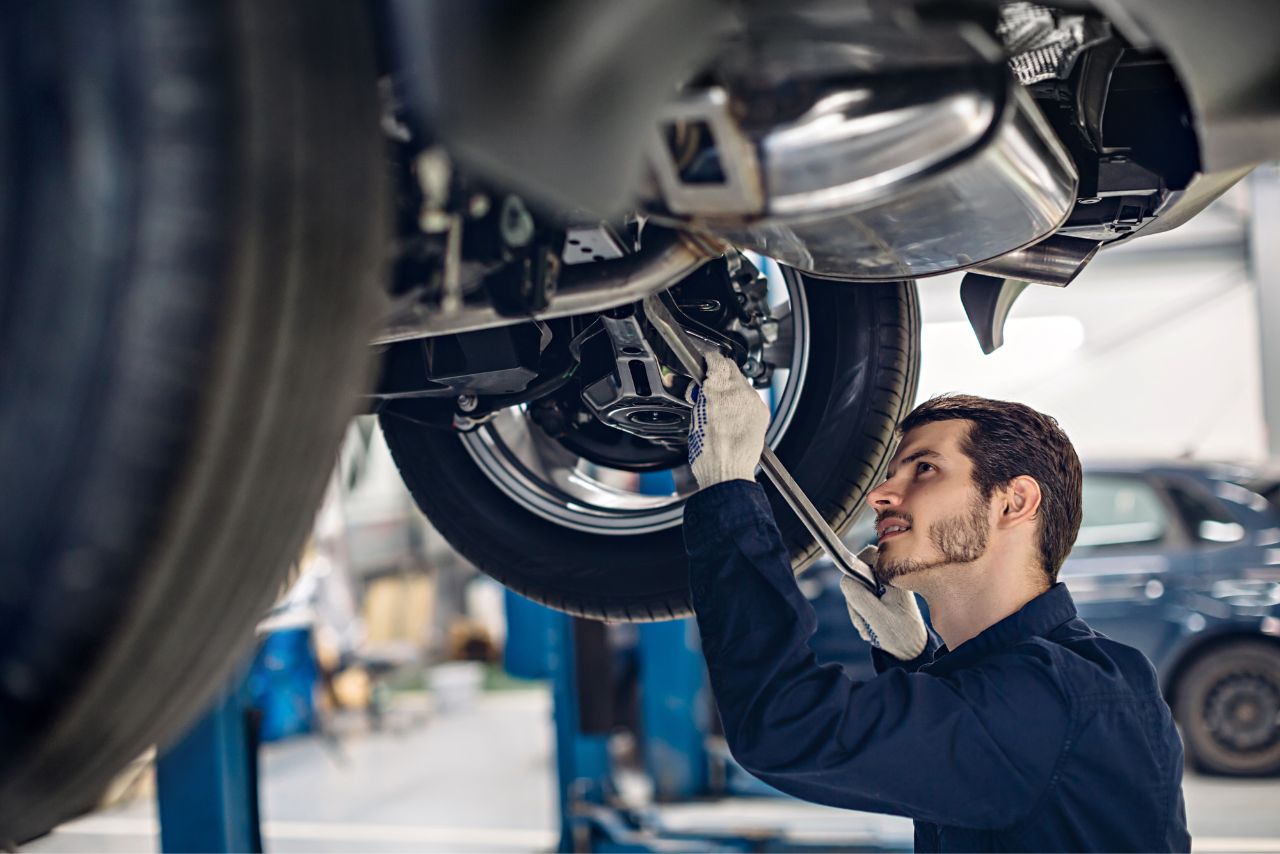
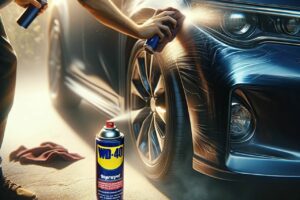
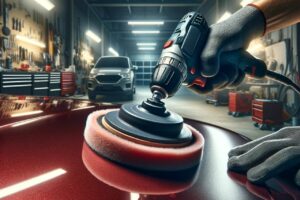

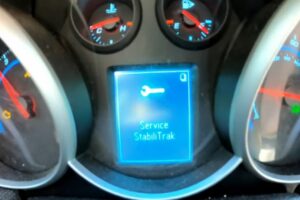

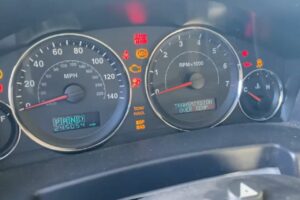
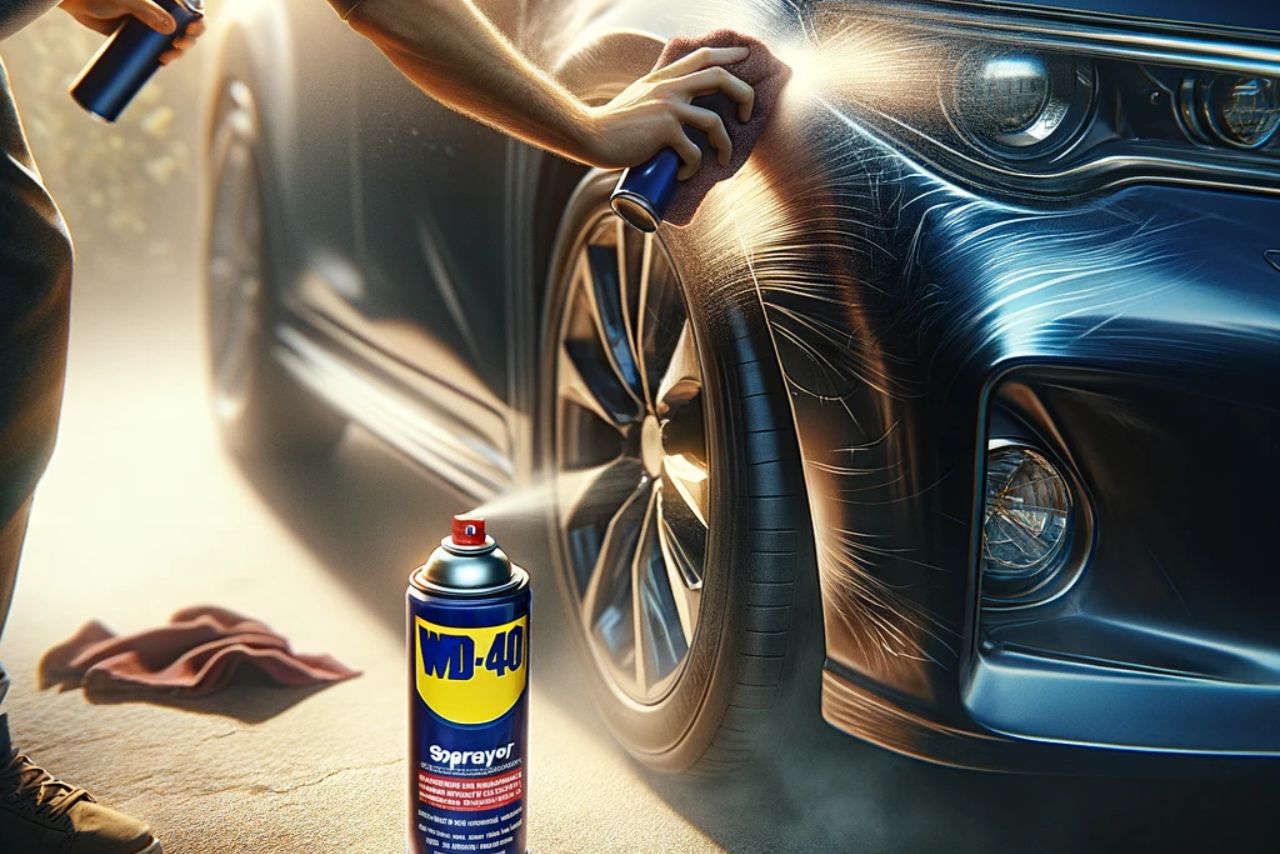
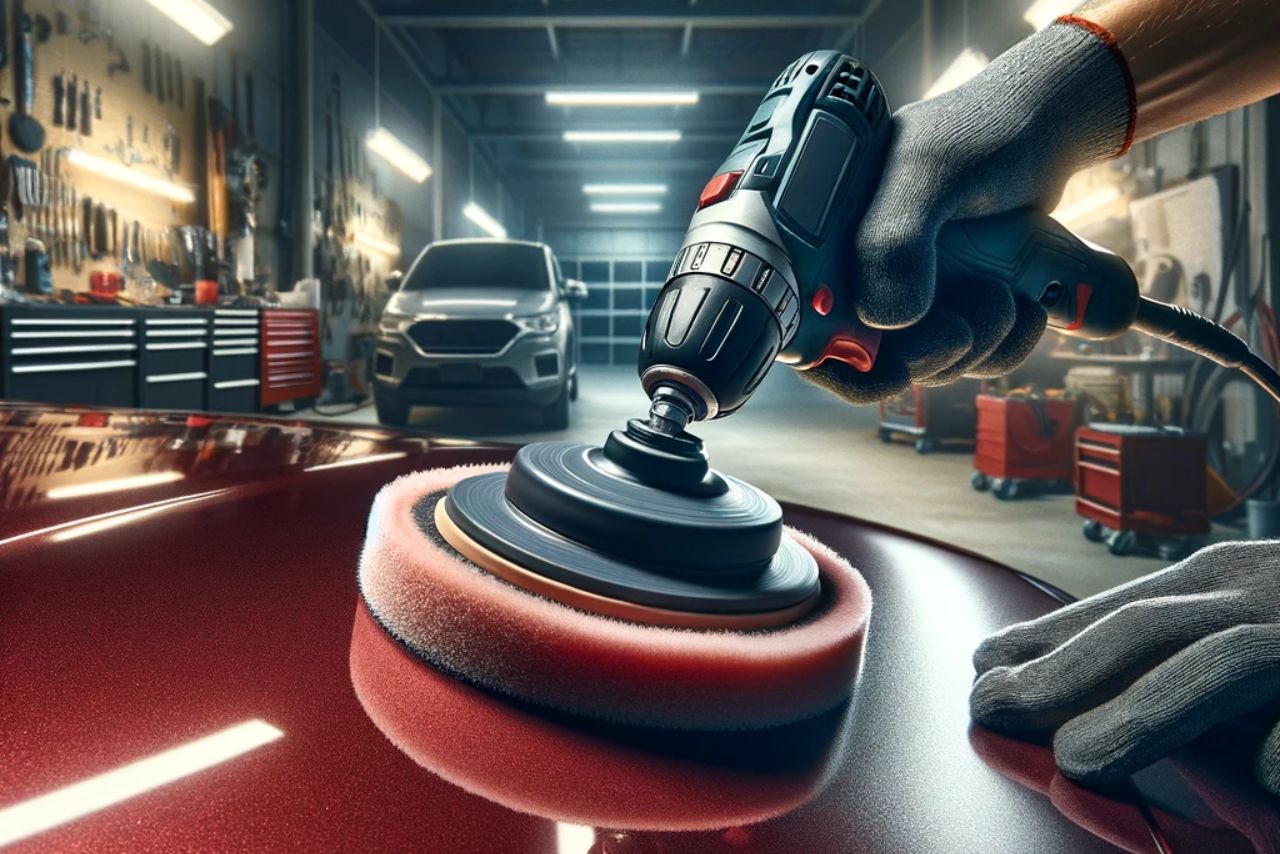


Leave a Reply